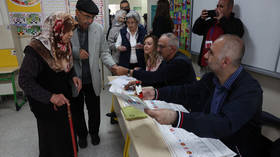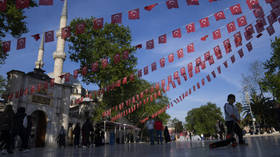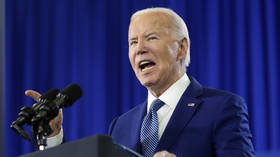High-stakes vote begins in Türkiye

The polls have opened in Türkiye for key presidential and parliamentary elections, that will decide whether incumbent President Recep Tayyip Erdogan will retain power, after a hotly contested race.
Polling stations opened at 8am local time in 81 provinces, with almost 200,000 ballot boxes installed across the country. Around 60 million people are eligible to vote, while 1.8 million people abroad have already cast their ballots. Both the president and members of the parliament are elected for five-year terms.
News, forecasts, and commentary on the elections are not permitted until 6pm local time, one hour after the polls close, while results cannot be reported until 9pm.
On Friday, Ahmet Yener, the head of the Supreme Election Board, said the authorities had taken “all measures for healthy and secure elections,” including reinforcing the technological infrastructure against power cuts and cyber-attacks.
Meanwhile, all eyes are on the heated presidential contest. The two main candidates are the incumbent, Erdogan, and opposition figure Kemal Kilicdaroglu, who leads the social-democratic Republican People’s Party (CHP). Recent polls indicate a tight race between the two. If no candidate wins at least 50% of the vote, a run-off will be held on May 28.
Erdogan and Kilicdaroglu hold opposing views on a range of policies. As Türkiye’s prime minister and later president, Erdogan has pursued a path of relative geopolitical independence, steering the country away from integration with the EU and fostering close ties with Moscow – which has not changed, even amid the conflict between Russia and Ukraine.
Kilicdaroglu, however, has taken more of a pro-EU approach, also vowing to comply with the Western sanctions on Russia if he wins.
The parliamentary election comes down to a race between The People’s Alliance (which currently holds a parliamentary majority and consists of Erdogan’s Justice and Development Party and the far-right Nationalist Movement Party) and the opposition Nation Alliance, which backs Kilicdaroglu for president and is comprised of six parties.













